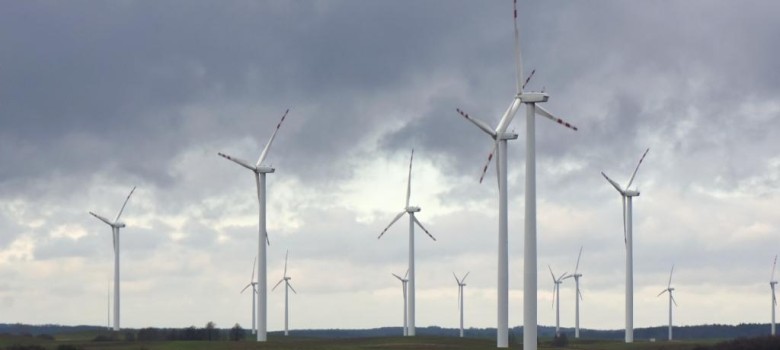
1. Fairer prices & more power to consumers
OFGEM, which is the regulator for gas and electricity, is set to get sweeping powers to protect consumers from unfair increases in energy prices. It will be able to impose stricter fines and force energy companies to pay compensation to customers if they are ruled to have been charging unfair prices.
2. Investment in Renewable Technology
The bill lays out a plan for continuous investment (£110bn up to 2020) in renewable technologies such as wind power, biomass and nuclear. This investment in renewables is happening at a time where we have had volatile wholesale gas prices, which seem to be increasing every year.
3. Improving & upgrade existing infrastructure
As well as investment in generation, there will also be increased investment to underpin the new technologies, with money being spent on rolling out smart meters, building back-up power plants and encouraging more efficiency in the transmission system. Total infrastructure investment over the next decade or so could well be in excess of £500bn.
4. Replacing Aged Coal & Nuclear Power Plants
Our nuclear power plants are aged and will need to be replaced. The UK has also committed itself to following certain EU regulations, one of which stipulates that it must phase out its existing coal fire power plants that don’t meet various emission targets. What this does is remove a fifth of generating capacity, leaving a big gap between supply and demand. So, new power plants need to be built to close this energy gap.
5. Pass on the Costs of these Investments to Consumers & Businesses
Unfortunately, all that investment has to come from somewhere, and the government are keen for households and business to pay for it. It is estimated that for an average domestic energy bill (which is between £1,200 & £1,300), consumers will need to contribute an additional £80 a year for these investments to happen. Therefore, the total average contribution is set to rise from its current level of £20 to £100.
6. The Green Deal
While the government realises that consumers may not be too happy having costs passed onto them by the energy companies, to soften these blows, they are continuing with their flagship Green Deal programme. It is a way for homes, district housing and small businesses to make investments of up to £10,000 in energy efficiency measures, thus cutting energy costs but not having to pay anything up front.
7. Excluding Heavy Industry from the ‘Green’ Levy
Big industrial industries such as cement and steel will largely be exempt from the main increases in energy levies. The government seems to have bowed to pressure from the companies in those sectors, who have threatened to leave Britain, take jobs and set up shop somewhere else, due to a risk in increase of running costs.
8. Encouraging New Technologies
For any new coal fire power plants that are to be built, they will be required to keep their emissions below 450g CO2/kilowatt hour (kWh) or install new carbon and capture and storage (CCS) technology to meet the limit. Previously coal fire power plants were allowed to continue running as long as they tested CCS, but no regulation acted as enforcement if these tests failed.
9. CfDs to Replace ROs
Contract for Difference (CfD) will replace the existing Renewable Obligation mechanisms. The CfD effectively provides a more level playing field for investors in renewable energies, where generators are incentivised to produce power as well as creating a more stable and guaranteed return over a number of years.
And finally…
10. No Carbon Target Commitments for Now
The most controversial aspect of the bill was that there was no sign of CO2 reduction targets. This decision has been put back till after 2016, which would be after the next general election, expected in 2015. The lack of targets sends a mixed message on how quickly the decarbonisation path is to be achieved and doesn’t fully incentivise emitting companies to cut their emissions or do anything differently.














Hi Clinton,
Thanks for getting in touch, so the Green Deal that you mentioned officially launches at the end of January. Once it launches, you will need to get a green deal assessment carried out by a qualified assessor and based on the assessment they will make various energy efficiency improvement measures that they can install in your home.
The measures suggested need to adhere to the Golden rule, which put simply means that your energy bills can’t increase once you get the measure installed. The savings made by installing the measure will cause a reduction in your bills, and the difference between the new lower energy bill price and your old bill price is used to fund the measure, hence you will pay the same as you currently pay until the measure is fully paid for, at which point your bill will decrease.
I hope that this makes sense!! I actually think that the Green Deal is a really good idea, so here’s hoping the UK Government throw their full weight behind it and it takes off!
Good luck and if you need any other assistance, don’t hesitate to get in touch!
Thanks for that summary. My house is detached and I don’t think it has much insulation. Can you tell me what kind of things are covered by the green deal as measured? Do you also know if I am to sell the property do I have to pay for this continuously?
Hi Clinton, well the first thing to do is call in a Green Deal assessor who will determine whether the walls of your property are solid wall or cavity wall. Anything built after 1930 will tend to be cavity which are easier to insulate, as insulating material is simply injected into the cavity. Solid wall insulation takes more time, and involves attaching insulating panels to the inside or outside of your walls (inside means rooms become a little smaller, while the outside can change the external appearance).
The Green Deal covers many different measures – these can be found on Page 6 of the link here
If you leave the property for any reason, Green Deal finance stays with the ‘electricity meter’, so the next owners / tennants will take on those payments.
More information can be found on the Green Deal pages of our site which can be found here.
http://www.thegreenage.co.uk/greenlegislation/green-grants-home/green-deal
Thanks for getting in touch!